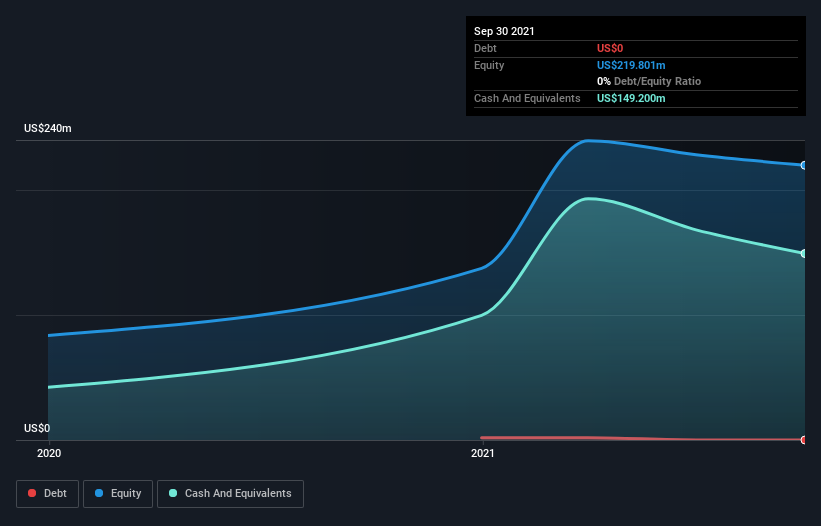We're Keeping An Eye On Finch Therapeutics Group's (NASDAQ:FNCH) Cash Burn Rate
Just because a business does not make any money, does not mean that the stock will go down. For example, although software-as-a-service business Salesforce.com lost money for years while it grew recurring revenue, if you held shares since 2005, you'd have done very well indeed. But the harsh reality is that very many loss making companies burn through all their cash and go bankrupt.
So should Finch Therapeutics Group (NASDAQ:FNCH) shareholders be worried about its cash burn? For the purpose of this article, we'll define cash burn as the amount of cash the company is spending each year to fund its growth (also called its negative free cash flow). The first step is to compare its cash burn with its cash reserves, to give us its 'cash runway'.
See our latest analysis for Finch Therapeutics Group
How Long Is Finch Therapeutics Group's Cash Runway?
A company's cash runway is the amount of time it would take to burn through its cash reserves at its current cash burn rate. In September 2021, Finch Therapeutics Group had US$149m in cash, and was debt-free. In the last year, its cash burn was US$80m. So it had a cash runway of approximately 22 months from September 2021. While that cash runway isn't too concerning, sensible holders would be peering into the distance, and considering what happens if the company runs out of cash. Depicted below, you can see how its cash holdings have changed over time.
How Well Is Finch Therapeutics Group Growing?
Notably, Finch Therapeutics Group actually ramped up its cash burn very hard and fast in the last year, by 166%, signifying heavy investment in the business. Of course, the truly verdant revenue growth of 153% in that time may well justify the growth spend. In light of the data above, we're fairly sanguine about the business growth trajectory. While the past is always worth studying, it is the future that matters most of all. For that reason, it makes a lot of sense to take a look at our analyst forecasts for the company.
Can Finch Therapeutics Group Raise More Cash Easily?
Finch Therapeutics Group seems to be in a fairly good position, in terms of cash burn, but we still think it's worthwhile considering how easily it could raise more money if it wanted to. Companies can raise capital through either debt or equity. Many companies end up issuing new shares to fund future growth. By looking at a company's cash burn relative to its market capitalisation, we gain insight on how much shareholders would be diluted if the company needed to raise enough cash to cover another year's cash burn.
Finch Therapeutics Group has a market capitalisation of US$462m and burnt through US$80m last year, which is 17% of the company's market value. As a result, we'd venture that the company could raise more cash for growth without much trouble, albeit at the cost of some dilution.
So, Should We Worry About Finch Therapeutics Group's Cash Burn?
Even though its increasing cash burn makes us a little nervous, we are compelled to mention that we thought Finch Therapeutics Group's revenue growth was relatively promising. While we're the kind of investors who are always a bit concerned about the risks involved with cash burning companies, the metrics we have discussed in this article leave us relatively comfortable about Finch Therapeutics Group's situation. Separately, we looked at different risks affecting the company and spotted 4 warning signs for Finch Therapeutics Group (of which 1 doesn't sit too well with us!) you should know about.
If you would prefer to check out another company with better fundamentals, then do not miss this free list of interesting companies, that have HIGH return on equity and low debt or this list of stocks which are all forecast to grow.
Have feedback on this article? Concerned about the content? Get in touch with us directly. Alternatively, email editorial-team (at) simplywallst.com.
This article by Simply Wall St is general in nature. We provide commentary based on historical data and analyst forecasts only using an unbiased methodology and our articles are not intended to be financial advice. It does not constitute a recommendation to buy or sell any stock, and does not take account of your objectives, or your financial situation. We aim to bring you long-term focused analysis driven by fundamental data. Note that our analysis may not factor in the latest price-sensitive company announcements or qualitative material. Simply Wall St has no position in any stocks mentioned.

